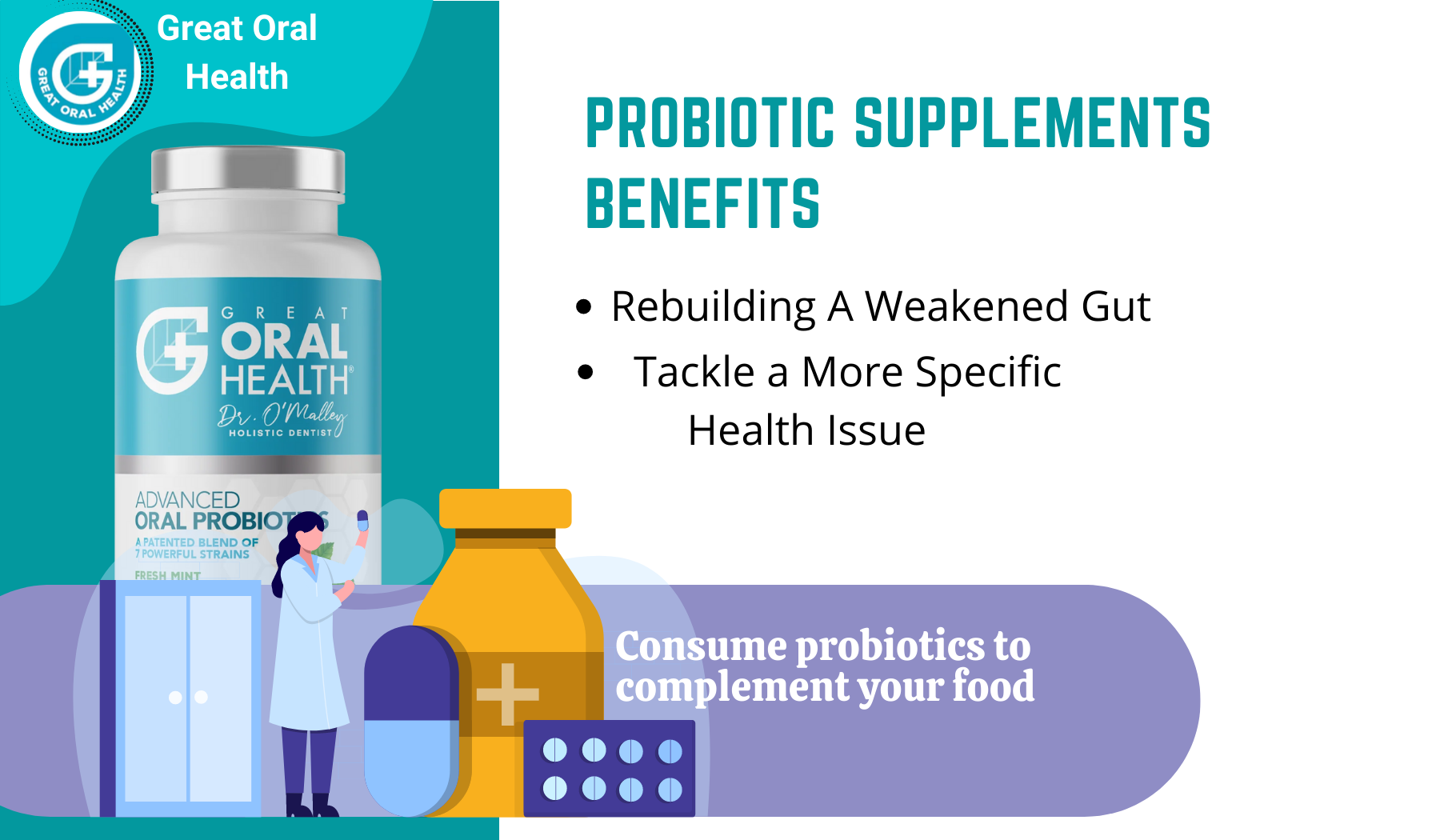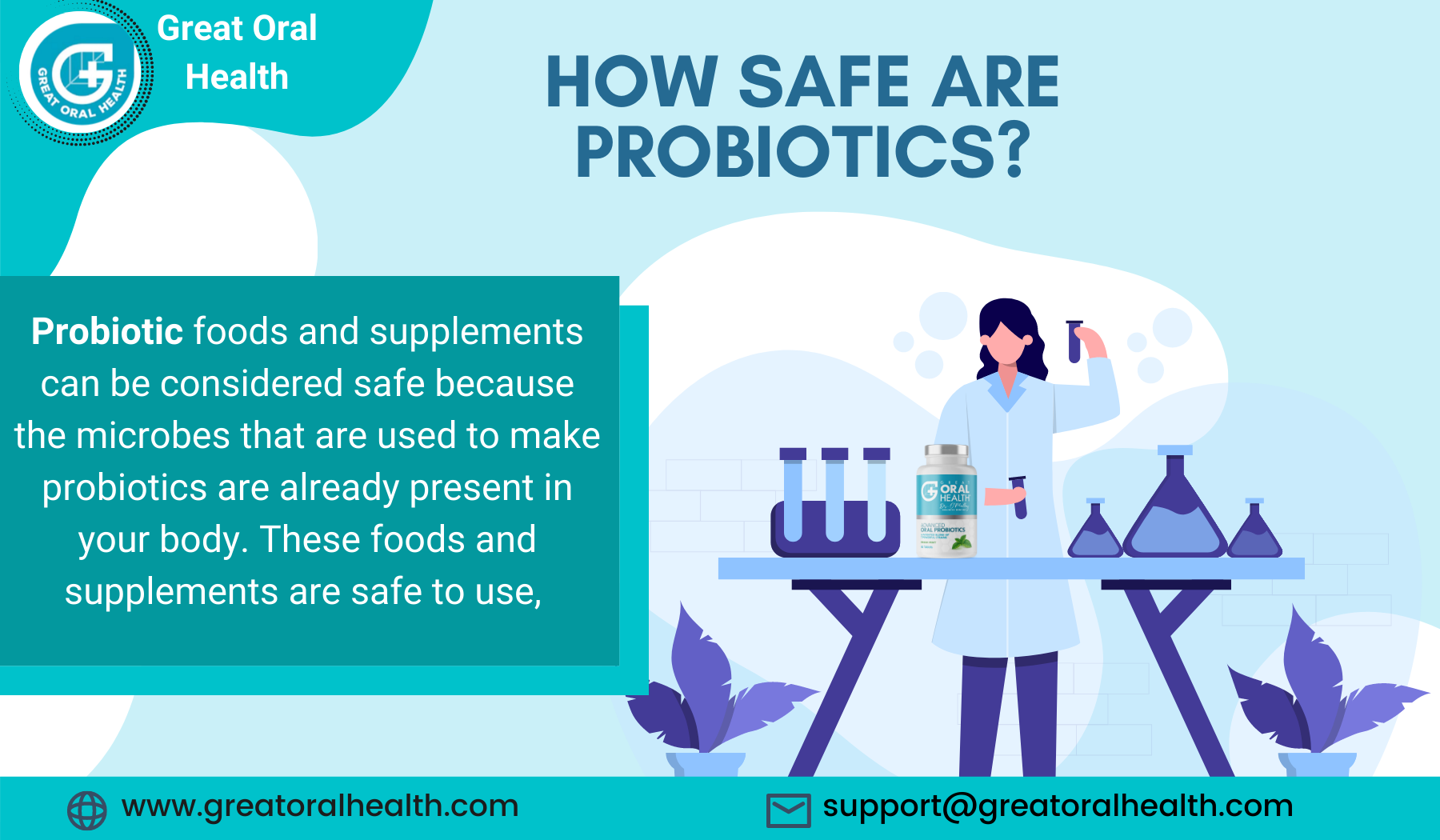May 30, 2019 7 min read

Probiotics have become quite a “buzzword” these days. In fact, it’s become quite the new “health craze”. There certainly are tons of claims, from preventing diarrhea to promoting cardiovascular health and even boosting your immune system as a whole. It has been over a century since probiotics were first “discovered” and it would seem that the science has held up.
Assuming that probiotics can do a body good, a very important question remains–is it better to get your probiotics from real food sources or from probiotic supplements (probiotic supplements vs food)?
Probiotics are the combination of bacteria and yeasts that live in your body. Bacteria are often viewed as something that causes you to get sick. There are two types of bacteria that live in your body:good bacteria and harmful bacteria.Probiotics contain good bacteria, which help to keep your body healthy. These good bacteria can help you in many ways. They can fight off harmful bacteria and make you feel better.
Although your gut is the most common place linked to beneficial microbes (mostly large intestines), there are many other places in your body that can host them. These areas are located in close contact with the "outside" world and include:
Probiotics are live bacteria that are beneficial for your digestive system.L. acidophilus (the most common form of bacteria found in the gastrointestinal tract) and Bifidobacteria boifidum (the least prevalent form of bacteria) can cause digestive problems, headaches, and irritability. You can eat foods and supplements that contain "good bacteria" to balance your health.
You might be familiar with real food sources of probiotics, such as yogurt or sauerkraut and other fermented foods. Probiotic supplements, on the other hand, may be a little less charted territory and a bit more confusing as you have to choose amongst specific strains of bacteria with really long Latin names!
While in real food sources you are likely to find a whole mix of beneficial bacteria,probiotic supplements usually contain specific strains that are grown in a laboratory type environment. This means that they are more defined in terms of their composition. And of course, they don’t come in real food form but are usually available in capsules, tablets, powders, and even drinks that contain specific probiotic strains.
As such, you might be better off to think of probiotic supplements in much the same way you think of medicines, and pharmaceuticals as a whole. But keep in mind that these are classified as “dietary supplements” and so are not subject to FDA approval. And while you can pretty much trust any reputable company as to safety and good manufacturing practices, keep in mind that the claims are not backed by the FDA.

Your gut health is key to managing skin conditions, mood disorders,weight loss, immune system boosting, mood improvement, and preventing future ones. Probiotic supplements and foods rich in probiotics can help improve gut health and reverse some health problems caused by bacterial imbalances in your GI tract.
Good bacteria are essential for good digestion, health, and strong immunity. These are the Probiotics best sources and can increase your body's ability to absorb vitamins and minerals efficiently. They can also help you balance neurotransmitters that control your mood. This is why having a healthy probiotic can reduce stress, anxiety, and depression. These Signs include:
If you have these signs, then Probiotics may be a good option if you are having trouble managing one of these conditions.
When it comes to choosing the right probiotic supplements, you should begin with the end in mind. Do you need to rebuild your gut health? Are you looking to lose some weight? Boost immunity? Improve your brain and heart health? by determining your needs, you can more easily figure out which probiotics are best suited in getting the job done.
Keep in mind that a healthy intestinal tract, including the oral cavity, contains hundreds of different strains of bacteria and so building a really healthy gut will require more than just taking probiotic supplements–which will only have a few strains of bacteria in them.
Diarrhea issues And Oral Probiotics:
If you are looking to use probiotics to address diarrhea issues, research suggests that probiotic strains such as Lactobacillus rhamnosus GG, Lactobacillus acidophilus,Lactobacillus bulgaricus as well as B. coagulans, S. boulardii, are particularly effective.
How to lose weight using Oral Probiotics:
Hoping to lose some weight? Lactobacillus gasseri, Lactobacillus rhamnosus, and a combination of Lactobacillus rhamnosus, and Bifidobacterium lactis might be helpful in getting rid of fat.
Brain health and Oral Probiotics:
When it comes to promoting brain health, probiotic strains such as Bifidobacterium longum, Bifidobacterium breve, Bifidobacterium infantis, Lactobacillus helveticus, and Lactobacillus rhamnosus may be particularly effective.
Healthier heart and Oral Probiotics:
If you want to have a healthier heart, you might try taking probiotic supplements containing Lactobacillus acidophilus, Bifidobacterium longum and Lactobacillus reuteri.
Are you looking for high-quality vitamins to help meet your health goals and stay healthy? To view our range of oral health products formulated with natural minerals and botanical ingredients, visit Great oral health online store and get oral probiotics.
Buy Oral Probiotics–Mint Flavor with Blis K12 & M18 |

|

yes, you can get probiotics from food containing probiotics or have them added to them, including yogurt, kefir, Red kidney beans, soybeans kombucha, sauerkraut, pickles, miso, Chicory tempeh, kimchi, sourdough bread, and some cheeses.
In contrast to probiotic dietary supplements, probiotic foods (and drinks) provide a more “natural” source of probiotics. Our ancestors have been eating fermented foods for a very, very long time and so one could conclude that natural sources of beneficial bacteria should be a part of your diet.
And these natural sources are not limited to yogurt and kefir. There are quite a few other probiotic foods such as kimchi, miso, sauerkraut, tempeh, and kombucha–to name just a few. All of these are typical examples of “natural” sources of probiotics. But hold on, at this point, you are probably tempted to say, “Well, if these are ‘natural’, then that means they are better,” and that’s a fair point. After all, what could be better than good ol''Mother Nature” to keep you healthy, right?
Unfortunately, in the modern food system it’s not quite so simple. So called “natural” products can be loaded with sugars (which feed the wrong kind of bacteria in your gut). Or they can have antibiotics, weed killers, insecticides and other chemicals that are present in our food production chain–all of which can be quite damaging to the gut bacteria and probiotic strains. Another case in point is that not all fermented foods have live and active probiotics.
There is also the issue that certain foods may trigger allergic reactions for some people, such as those that are lactose intolerant. For some people, certain probiotic-rich foods can have unpleasant side effects such as gassiness, or even nausea. While these side effects will generally subside and disappear over time, still they can be problematic to get through.

Probiotic foods and supplements can be considered safe because the microbes that are used to make probiotics are already present in your body. These foods and supplements are safe to use, but some people get affected who have:

Now that we’ve gone over both,which of them is better? According to a 2016 study comparing the benefits of probiotic supplements versus real food sources there does not seem to be sufficient scientific evidence to suggest one is objectively “better” than the other. Both probiotic foods (and drinks) and probiotic dietary supplements have demonstrably been able to confer certain health benefits. And, while more in depth research is perhaps needed in order to really determine which is the “better” source, the truth is that they are both good for you.
There is one VERY important point to understand. The end goal of eating probiotic rich foods, or supplementing, is to rebuild and establish a healthy bacterial balance in your gut. This is sometimes called your “microbiome.”So, if you are taking probiotic supplements that are not designed to pass through the stomach and into the intestines, then these will do you little good. Or if you are taking a number of antibacterial products then this will counteract the benefits of eating natural probiotic foods. Think of your gut as a garden–plant the right seeds, feed it the right foods, protect it against predators (antibiotics, chemicals and bad foods) and you will have a healthy, thriving garden!

And, sticking with the “garden” idea, giving your plants fertilizer helps them to grow. This is true for your gut bacteria which love certain types of food. Keeping it simple at this point, these gut foods are known as “prebiotics” and it will do a world of good if you add these to your diet as well. Your path to a healthy gut will be much slower if you don’t make sure that those probiotics you are taking don’t have something to feed on!
In closing, regardless of which of these might theoretically be better it is the one that you actually take that can make the difference. At the end of the day, the deciding factors might just be convenience and one’s personal preference.
And, as Mentioned, there are the personal factors to consider such as dietary restrictions (whether due to medical, or personal reasons), specific objectives in taking probiotics, budget, and overall level of health. Carefully considering these things will help you decide whether probiotic foods, probiotic supplements, or even a combination of the two is the best choice for you.
One note of caution, while probiotic supplementation is generally safe for most individuals it is a wise idea to start off slow! Too much added bacteria can sometimes trigger some very unpleasant gut issues. While these can pass in time, it really is not necessary to overwhelm your system all at once. Start slow, be consistent and good things can happen.
Just remember that since ancient times, it has been said that good health begins in the gut–so get started on that path today!
